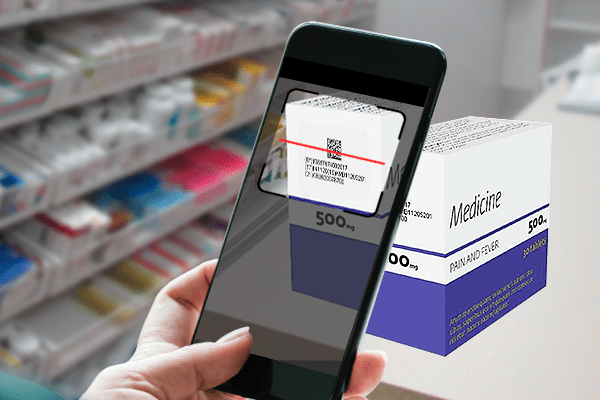Growing at a CAGR of 5.7%, the global clinical trials industry is set to be worth $65.2 billion by 2025 as per Grand View Research, Inc. Under the constant stress of a myriad of challenges like complex research designs, stringent and ever-changing regulations, greater demands for consumer transparency, packaging and printing as well as R&D in a highly competitive environment to test and launch authentic and effective drugs, Life science companies need to look for solutions to refine clinical trials management. With millions of people connected through their smartphones to the internet and consuming digital information in vast quantities, they may already have a readily available platform to capitalize on.
Technology could serve as the answer to rein in the rising costs incurred due to the various challenges as well as trim and polish up the supply chain. Digital labels enabled drugs with smart packaging is one upcoming technology which could help improve efficiencies with clinical trials management.
Enabling Clinical Trials Drugs as Smart Products
Smartening up drug products involves enabling them to be connected to the internet through Data matrix codes and an assigned IoT / internet ID and creating a digital twin for each product which can be used to send or receive information about the drug to patients or healthcare professionals. Accessible through any internet-enabled device, these codes on scanning trigger a digital interaction which takes the patient or participant to a product specific page often referred to as a digital label or electronic label. With a digital identity in place, a vast number of digital interactions are made possible.
So what kind of digital interactions are we talking about and how will they help streamline clinical trials management?
Improved Health Literacy and safer consumption practices
The sea of tiny text containing complex instructions and medical jargon on drug packaging can be baffling for many to comprehend. Lack of proficiency in one language could also prevent many from accessing correct medical information, leading to miscommunication and life-threatening risks. Clear and concise information is the key to improved health literacy and making better health decisions, and digitizing label content could provide a massive boost in this direction.
Designing attractive and easy to understand formats to convey relevant information, like expiry dates and dosage instructions using colour codes without worrying about lack of physical space on packaging, becomes a possibility through digital labels. Digital labeling provides a faster and smarter alternative to leafing through pages and pages of a booklet. Simple animations can also be incorporated to deliver relevant instructions, eliminating the language barrier factor.
Richer and more meaningful research data
Smart packaging enabled drug products can help researchers maintain and keep track of research variables in a more meaningful manner. These products can form a two-way channel between participants and researchers, allowing more rapid and easier collection and transfer of responses and modification of variables if needed.
Digital Consent forms
Smart drug products can facilitate the collection of consent forms digitally, making it a smoother and simpler process for participants in clinical trials. Participants will have the opportunity to go through all information, which would be available digitally through the product’s smart packaging, before providing their consent electronically against that specific dose with the help of a smartphone.
Manage changes in regulations and study protocols
Life science companies are required to navigate through and comply with strict and intricate regulations which are constantly liable to changes. They also need to deal with changes in study protocols like expiry dates and IFUs or the addition of another country for testing during clinical trials on a regular basis.
Giving an IoT based digital identity to their products empowers them to easily make updates and changes to desired products on batch and serial levels, reducing the need for reprinting and repackaging.
Smart packaging is Green!
Not only will digital labeling facilitate the distribution of large quantities of information in easy-to-read formats, but they will also drastically reduce the volume of materials that go into producing packaging. By being able to electronically and remotely update label content, companies will also be able to cut down on waste as well as huge costs otherwise incurred due to repackaging and reprinting.
Customer engagement
Smart drug products can forge the bridge that brings Life science companies closer to their customers. By digitizing and simplifying label content for easier consumption by lay people, they are demonstrating their desire to empower patients to make better and informed choices regarding their health. Better informed customers are more likely to support research, resulting in better recruitment and retention of participants for clinical trials.
Life science companies need to turn to technology in order to tackle the various challenges faced by the clinical trials industry. Smart packaging and IoT enabled Smart Products can facilitate the way into the future of clinical trials by transforming it into a more efficient system with reduced human-errors while establishing an enriched and more meaningful relationship between industry and patients.

Recent Comments